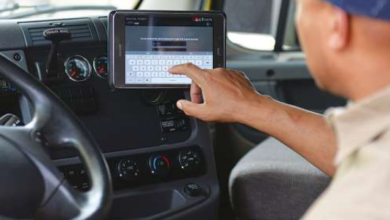Unlocking the World of Currency Trading: A Beginner’s Guide to Choosing the Right Forex Broker

Entering the world of currency trading, or forex, can be a thrilling venture for any beginner. The allure of the forex market lies in its continuous operation, 24 hours a day, five days a week, and its immense volume, making it the largest financial market globally. However, navigating through the vast ocean of forex broker can be daunting for newcomers. Selecting the right broker is crucial as it can significantly impact your trading experience and success. Here is a beginner’s guide to help you make an informed decision.
Understanding Forex Brokers
Forex brokers act as intermediaries between retail traders and the forex market. They provide traders with access to a platform that allows them to buy and sell foreign currencies. Brokers earn money through spreads (the difference between the buying and selling price) and, in some cases, commissions based on the volume traded. Given the critical role brokers play, choosing the right one is paramount for any trader.
What to Look for in a Forex Broker
Regulation and Security
The first and most crucial factor to consider is whether a broker is regulated by a reputable financial authority. Regulatory bodies such as the U.S. Commodity Futures Trading Commission (CFTC), the National Futures Association (NFA) in the United States, the Financial Conduct Authority (FCA) in the United Kingdom, or the Australian Securities and Investments Commission (ASIC) ensure that brokers operate under strict guidelines, offering traders a level of protection. Trading with a regulated broker minimizes the risk of falling victim to fraud or unethical practices.
Fees and Spreads
Understanding how brokers make money is essential. Compare the spreads and fees charged by different brokers. While some brokers offer no-commission trading, they might make up for it with wider spreads. Others might offer tighter spreads but charge a commission. Depending on your trading style and the volume you plan to trade, one option might be more cost-effective than the other.
Trading Platform
The trading platform is your gateway to the forex market, so it should be user-friendly, stable, and feature-rich. Most brokers offer a demo account that allows you to test their platform before committing. Look for platforms that offer free news feeds, technical analysis tools, and support for automated trading systems. Popular platforms like MetaTrader 4 (MT4) are widely supported and offer a range of features beneficial for beginners and experienced traders alike.
Customer Service
The forex market’s round-the-clock nature demands robust customer support from your broker. Ensure that the broker offers 24/5 or 24/7 customer service and multiple contact methods, including live chat, email, and phone support. The quality of customer service can greatly affect your trading experience, especially during volatile market conditions.
Execution Speed and Slippage
In fast-moving markets, execution speed can make a significant difference in the profitability of your trades. A good broker should offer fast trade execution and minimal slippage. Slippage occurs when there is a difference between the expected price of a trade and the price at which the trade is executed. Lower slippage means that your trades will be executed closer to the prices you expect.
Leverage and Margin
Forex trading often involves the use of leverage, which allows you to control a large position with a relatively small amount of capital. However, higher leverage also increases the risk of substantial losses. Understand the leverage and margin requirements offered by the broker and consider your risk tolerance before deciding.
Conclusion
Choosing the right forex broker is a significant step in your trading career. By focusing on regulation and security, fees and spreads, the trading platform, customer service, execution speed, and leverage options, you can select a broker that aligns with your trading goals and strategy. Remember, thorough research and due diligence are key to finding a broker that will support your success in the forex market.





